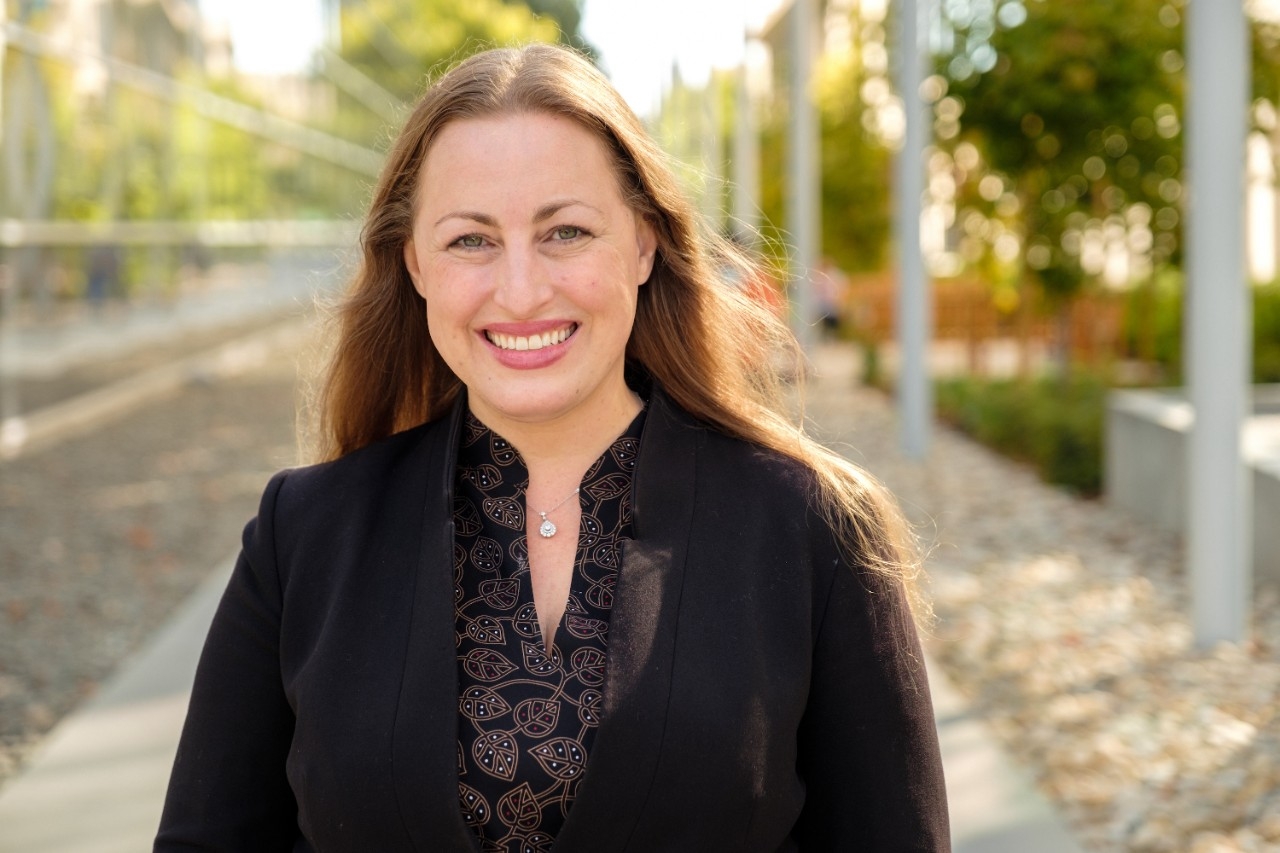Neuroscientist Michelle Monje awarded MacArthur 'genius grant'
By Erin Digitale
Neuroscientist and neuro-oncologist Michelle Monje, MD, PhD, has been awarded a 2021 MacArthur Fellowship from the John D. and Catherine T. MacArthur Foundation.
The Wu Tsai Neurosciences Institute faculty affiliate is being recognized for her work to understand healthy brain development and create therapies for a group of lethal brain tumors.
“I was very surprised and incredibly honored,” said Monje, associate professor of neurology and neurological sciences, describing her reaction to the phone call during which she was informed she was a recipient of the $625,000 grant.
The prestigious fellowship, unofficially known as a "genius grant," is given “to talented individuals in a variety of fields who have shown exceptional originality in and dedication to their creative pursuits,” according to a statement from the foundation.
“Dr. Monje’s research is driven by a combination of deep scientific curiosity about healthy neurological development and compassion for children who are affected by deadly brain tumors,” said Lloyd Minor, MD, dean of the Stanford School of Medicine. “Her work is a fantastic example of the type of multidisciplinary creativity that is honored by the MacArthur Fellowship, and we are thrilled that she was selected.”
Monje’s research focuses on understanding healthy brain development, especially the role of glial cells, which surround and support neurons and contribute to brain plasticity. Her team also studies how the cells’ development goes awry in a group of pediatric brain tumors known as high-grade gliomas, such as glioblastoma and diffuse intrinsic pontine glioma.
“Dr. Monje is widely considered a pioneer of the emerging field of cancer neuroscience,” said Frank Longo, MD, PhD, professor and chair of neurology and neurological sciences. “She has made a series of breakthrough discoveries that shed new light on both brain cancer and the cognitive impairment from which cancer survivors often suffer, and she is already translating several of her laboratory discoveries into clinical trials focused on improving outcomes for children and adults with aggressive brain cancers.”
How experience physically changes the brain
Her lab has discovered that, in the healthy brain, neuronal activity causes changes in glial cells’ formation of a structure called myelin, which coats the long arms of neurons and hastens the transmission of electrical impulses. In this way, activity-dependent interactions between neurons and myelin-forming glial cells contribute to brain functions like learning and memory.
“The activity of the nervous system itself is a powerful force regulating development and plasticity in the healthy brain,” Monje said. Neurons that are more active induce their supporting glia to lay down more myelin, making those nerve fibers work more efficiently. In other words, experience physically changes the brain.
Certain forms of chemotherapy disrupt this process, Monje’s team found, explaining a common — and potentially treatable — cognitive side effect of cancer treatment colloquially known as chemo brain.
In gliomas, malignant glial cells hijack the brain’s normal communication techniques, Monje’s team has learned. Gliomas form electrical connections called synapses with nearby healthy neurons, and use the brain’s normal electrical signals to drive their malignant growth, her team found.
“We discovered that these cancer cells integrate into neural circuits, and the electrical signaling drives the cancer growth,” Monje said. “This cancer is an electrically active tissue, and that was just not how people had thought about cancer before.”
Monje’s simultaneous work to understand healthy and cancerous glia is providing new hope for better glioma therapies. Interrupting electrical signals from the healthy brain to the cancer can slow tumor growth, her team discovered. Using mouse models, they demonstrated that blocking a specific protein involved in synapse function halted tumor growth for several months. The team is conducting a Phase 1 clinical trial of an experimental drug that blocks the protein’s function in children with high-grade gliomas. Results are expected in 2024.
Monje is a member of Stanford Bio-X, the Institute for Stem Cell Biology and Regenerative Medicine, the Maternal and Child Health Research Institute, the Stanford Cancer Institute and the Wu Tsai Neurosciences Institute at Stanford.
